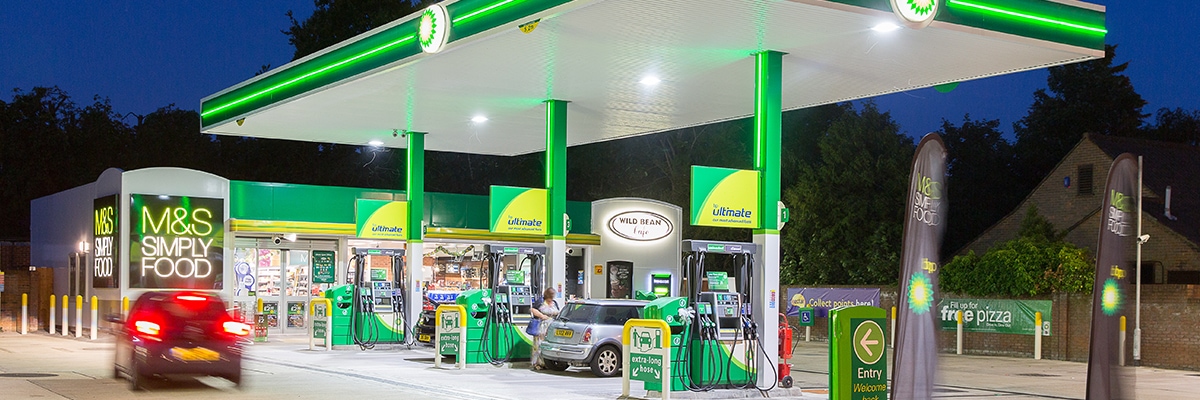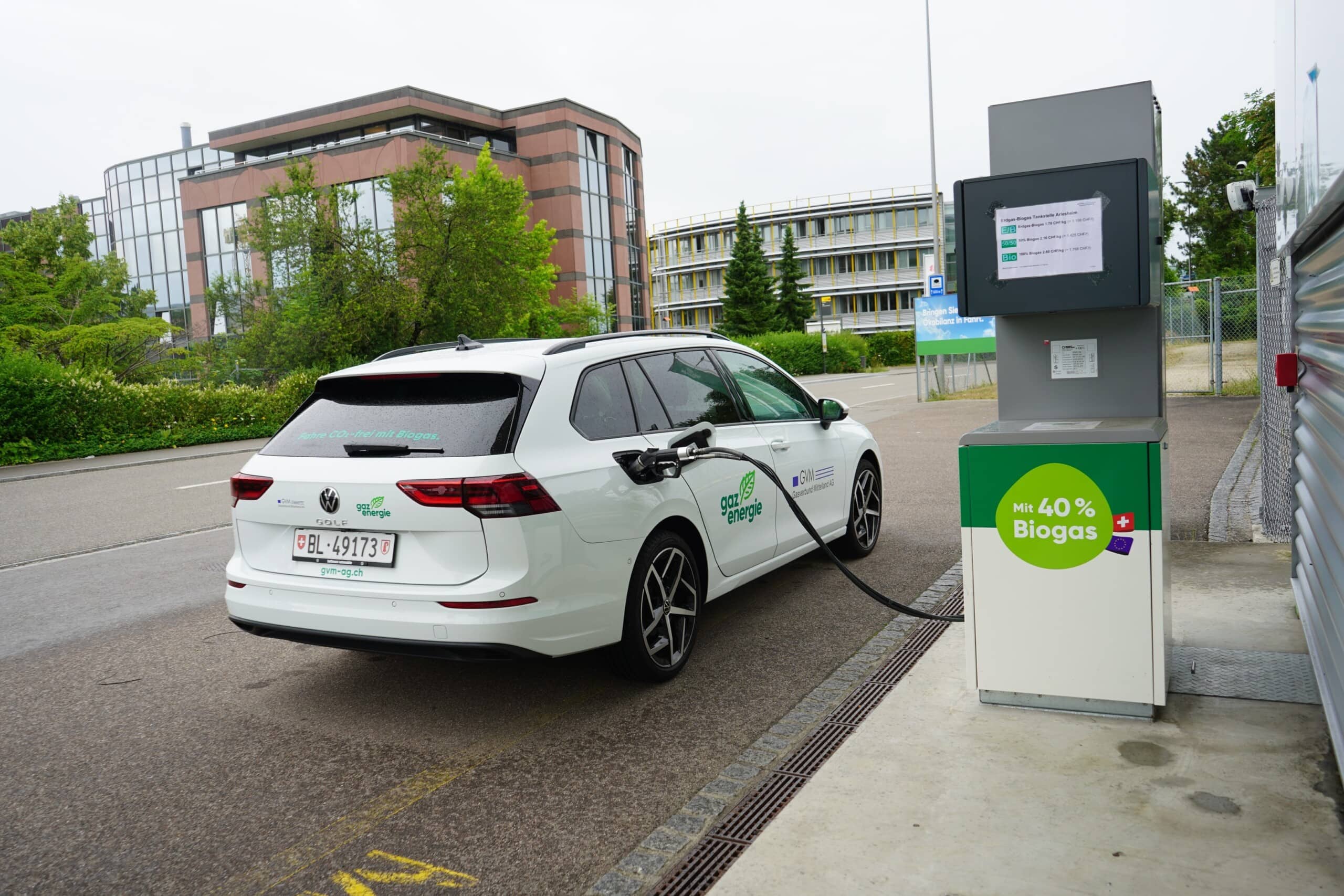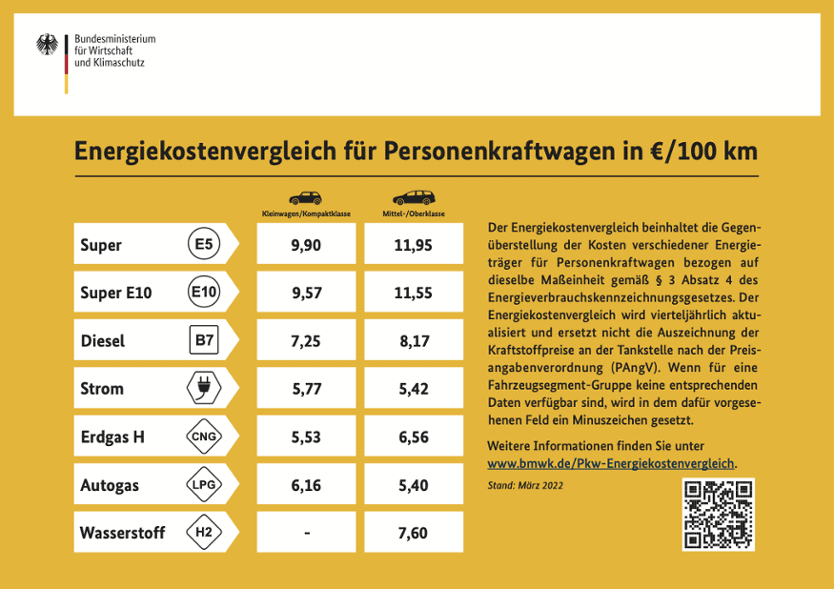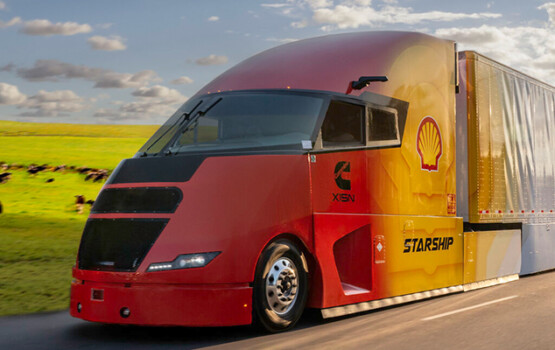Portal for more climate-friendly mobility

CNG wins out in energy cost comparison
Energy costs are currently increasing by the day. Exorbitant prices at filling stations are straining mobility budgets to the limit. An official comparison by the German Federal Ministry for Economic Affairs and Climate Protection now shows that CNG vehicles are the cheapest to run.
 At the CNG filling station, the price shock for motorists has yet to materialise. Source: CNG-Mobility.ch
At the CNG filling station, the price shock for motorists has yet to materialise. Source: CNG-Mobility.ch
Russia’s terrible war of aggression in Ukraine has caused energy prices to skyrocket. At filling stations, the price of petrol and diesel almost seems to shoot up while you’re fuelling your car. All kinds of fuel-saving tips are gaining popularity – such as dismantling unused roof racks, taking unnecessary belongings out of the boot to lower the total weight, or increasing tyre pressure by 0.3 bar to reduce rolling resistance and therefore fuel consumption.
Even if the price of fuel is currently hitting the ceiling, vehicles that run on CNG are still significantly cheaper to run at the moment than those with a conventional combustion engines or even electrically powered cars. For some time now, the information platform CNG-Mobility.ch has provided explanations of how cost savings of at least 30 % are possible as compared to conventional fuels if you drive a vehicle that runs on CNG. The latest energy cost comparison published by the German Federal Ministry for Economic Affairs and Climate Protection shows that CNG-powered cars are ahead of the pack in terms of CO2 emissions and in terms of energy costs, too.
 Source: Deutsches Bundesministeriums für Wirtschaft und Klimaschutz
Source: Deutsches Bundesministeriums für Wirtschaft und Klimaschutz
In drawing up this comparison, the German ministry used the fuel consumption data of the three best-selling vehicle models in the small car/compact class and medium/top class segments as well as the respective engine power required based on the WLTP cycle. At 5.53 euros per 100 km, the CNG drive system performed best in the category of small and compact cars, even outperforming electric cars at 5.77 euros per 100 km. In the case of mid-range/luxury performance vehicles, electric cars were in the lead at 5.42 euros as compared to 6.56 euros; but CNG vehicles still proved to be a sound solution for going easy on the mobility budget – compared to 8.17 euros for a diesel engine and 11.55 euros for a petrol engine.
One aspect not revealed in the German Federal Ministry’s energy cost comparison, which is to be updated in June 2022: vehicles that run on CNG make us independent of the much-debated supply of energy from Russia. Because if you use biogas rather than CNG, you’re not just carbon-neutral – you’re also using regionally produced energy. In Switzerland, biogas is made from organic waste from agriculture, food production, catering and households, thereby ensuring closed cycles. Another important point is that no crops are grown for the production of biogas in Switzerland. Incidentally: as of the end of 2021, the CNG at Swiss filling stations already has an average of 26.0 % biogas added. And this share is to be increased continuously over the next few years. (jas, 10 March 2022)
You might also be interested in

Shell Starship on record hunt
